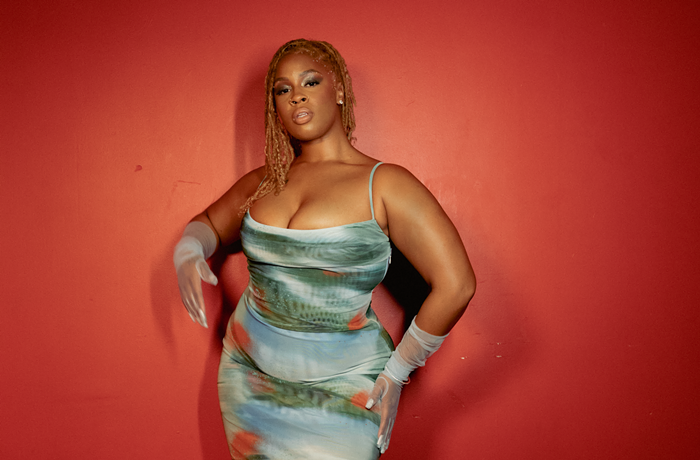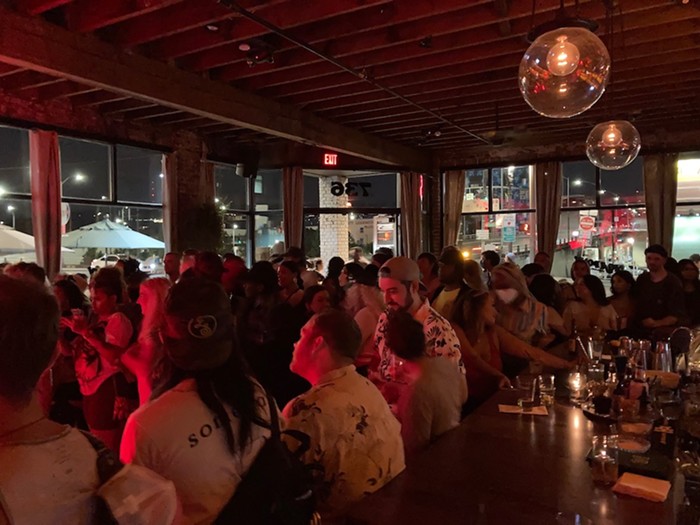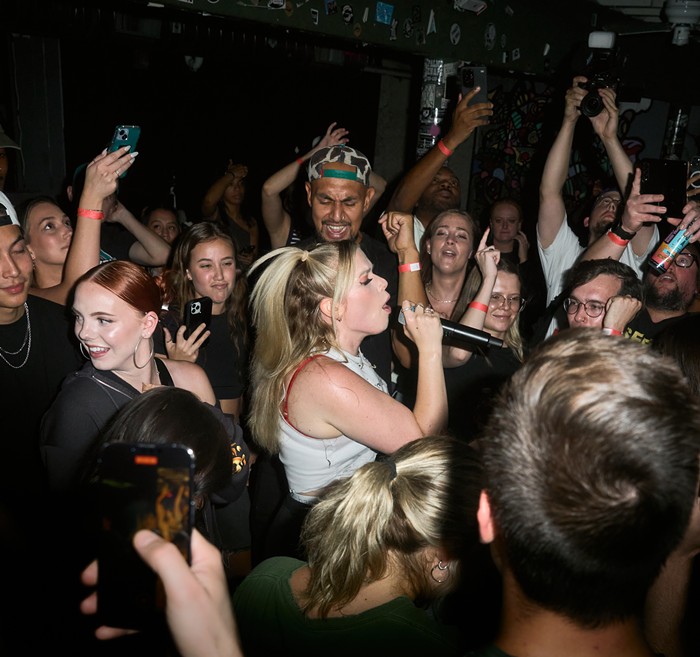If you want to find out more about Portland post-punk trio Collate, you’ll have to go to a show and talk to ’em. That’s because the band has decided to stay mostly off the internet. A Google search turns up very little. There’s no flowery Facebook bio, no pithy Twitter feed—just a basic Bandcamp profile with a couple of shows listed and a couple of albums to listen to.
“We’re not trying to be willfully obscure or anything. I think it’s just sort of a response to the oversaturation of social media,” says bassist Erika Elizabeth. “We don’t need to get into the constant shameless self-promotion end of things, trying to get more clicks and views. [Bandcamp] seemed like the easiest way to have something that people can use to get info without us bombarding them with bullshit all the time.”
Dig a little deeper and Collate’s punk-rock principles start to surface. Elizabeth has been involved in DIY and punk since she was a teenager, and her bandmates—guitarist Jason Nickle and drummer Travi D—have been playing in underground bands for years. When it came time to decide how to promote Collate, they were all on the same page.
“You think about Facebook, which is this huge multi-billion-dollar entity now, and it’s all about ad revenue... and feeding your information into this void,” Elizabeth says. “I think by opting out of that... it is kind of a punk rock response in that way, just trying not to provide content for these organizations that might not be using it for ends that we would agree with.”
Collate’s commitment to doing things their way stretches back to their origin. A few years ago, Elizabeth was playing in Dr. Identity, while Nickle and D were in a bunch of different bands together, including Conditioner and Ex-Debs. They shared overlapping circles of friends, and just as Dr. Identity was ending, the three launched a loosely defined new project.
There was no plan for how this new band would sound, though all three members DJed around town, so they knew each others’ tastes. Elizabeth is fully steeped in post-punk and loves the great Athens, Georgia band Pylon. D is into free jazz. D and Nickle are both big fans of kinetic disco. And all three draw much inspiration from the Fall.
“We all have things we share in common in terms of influences, and there’s definitely things we diverge on,” Elizabeth says. “But it all comes together.”
That’s especially true on the band’s self-released second album Liminal Concerns, which the band recorded on a Tascam Portastudio 488 MKII (a recorder for cassette tapes) in their practice space. (A debut cassette, Material Inspection, came out last year.) At 10 songs and just 19 minutes, Liminal Concerns is a tightly wound trip through a weird world of austere post-punk, where Elizabeth’s bouncy bass often sets the pace, Nickle’s guitar buzzes and skronks like electrified barbed wire, and D provides an invaluable backbone. Elizabeth and Nickle share vocal duties, singing obliquely about political issues, interpersonal relationships, and life in the modern age.
“We don’t want to be abrasive and confrontational,” Elizabeth says. “But we want it to be rough around the edges, I guess.”
Besides self-recording Liminal Concerns, Collate funded the album, printed their own covers, and stuffed their own LPs. And when it came time to book a release show, the band wanted a non-traditional, all-ages venue like the Cobra Lounge. It’s all part of Collate’s hyper-DIY, hyper-local approach to rock ’n’ roll.
“These are all things that are connected,” Elizabeth says. “It’s important to us as a band to do things ourselves and to support other people who are doing good things for the community and doing things on their own terms.”


















